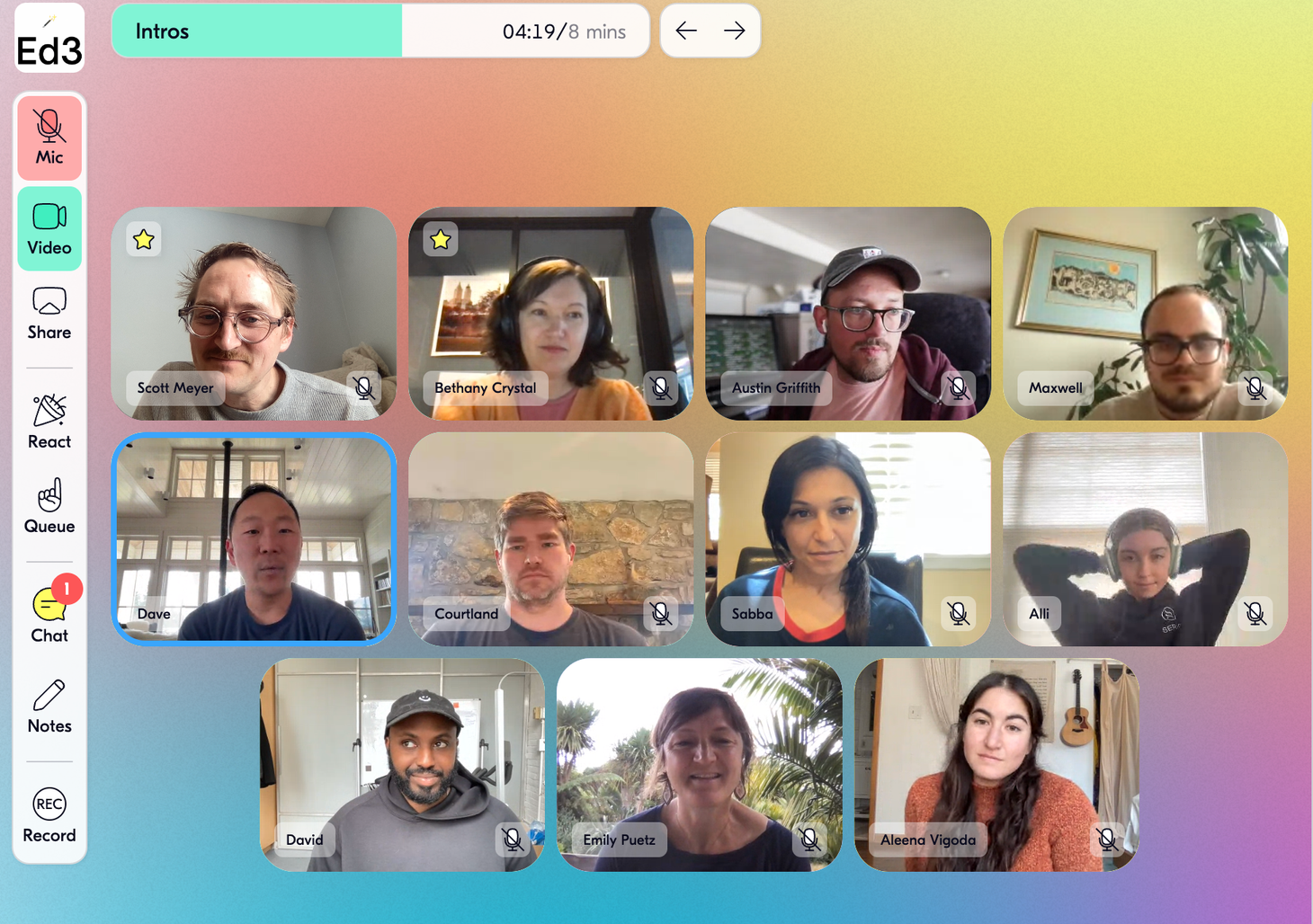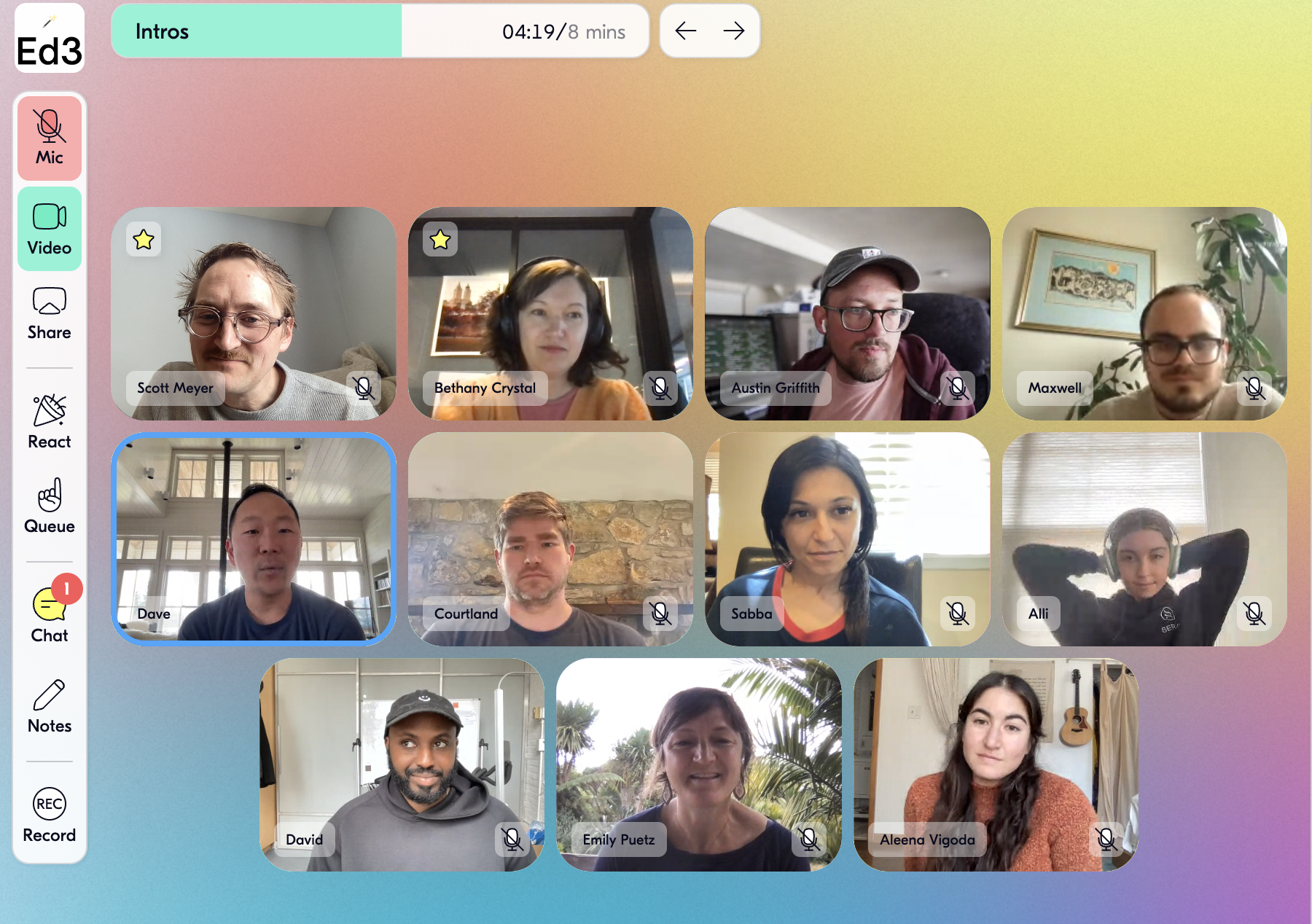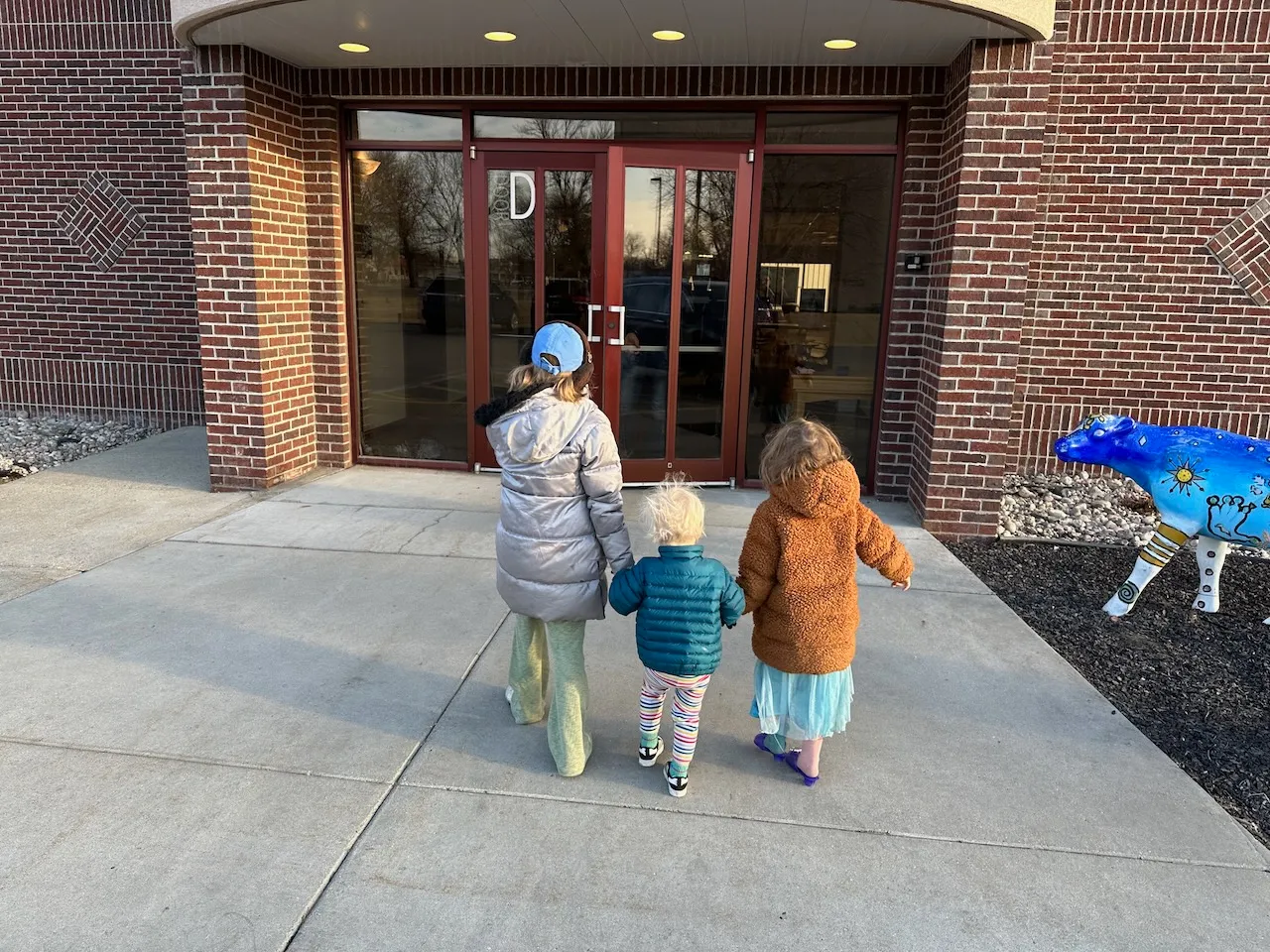🗞 Algorithmic Thinking, AI Tutors, LangChain, and more
The skills of the future may include learning to converse with machines, like your AI tutor built with LangChain. Learn about this future, known as algorithmic thinking.

Table of Contents
On Algorithmic Thinking
📌 This week, I co-hosted a workshop asking what skills we should teach high schoolers to adequately prepare them for the future?
I wasn't the only one thinking about it:
My goddaughter is a first year in college and asked how she should pick a career path that is defensible against AI.
— Kyle McCollom ☀️ (@kylemccollom) April 1, 2023
I don't have an answer yet. How would you respond?
The brilliant education thinkers I had the chance to work with identified three key areas, each with important skills:
- Mindsets
- Code-switching
- Decision-making with imperfect information
- Abilities
- Storytelling
- Sales
- Entrepreneurship
- Approaches
- Learning how to learn
- Thinking algorithmically
🧭 It was this last answer that was completely new to me: thinking algorithmically.
Austin Griffith, who brought it up, argued that his entire way of coding has changed due to AI in just the past six months. He is now communicating with a machine. He believes this is just the beginning and is a key skill for everyone to learn.
Today, it is coders and designers. Tomorrow, it is every interface in our lives.
If your water heater breaks, it is not searching for a YouTube video or looking in a manual. It is a conversation with a computer to discuss what to try and how to fix it. We must ask the right questions to elicit the necessary information.
If you want to learn a new topic, it is not signing up for an online class. It is conversing with a machine to guide the AI companion in the right direction to give you the information and credential you want.
This algorithmic thinking has been important for coders, but it may become a key skill for all of us.

🎯 Serj Hunt and I were able to dive deeper into this concept in this week's Ed3: Unplugged.
As Hunt put it:
Humans are idea to reality creatures. We make use of our imagination and then use ourselves as an instrument to get it into the world. In this way, technology has been interacting with us all the way from holding a spear to large language models.
Algorithmic thinking could be considered a refresh of logical thinking, as outlined by Karl Popper, but framing it as algorithmic thinking feels like a good fit for this moment.
Hunt argued for an alternative framework focused on:
- Agency - the ability to know what to do when you don't know what to do
- Learning relationships - the ability to find and build connections with those who help bring ideas to reality (man or machine!)
- Systems thinking - the ability to understand how ideas are connected and solve problems that are related to one another
The world is quickly changing. Identifying the specific skills our kids will need is a difficult task, but one we should constantly reflect on.
You can listen to the discussion with Hunt as a podcast or YouTube video.
On AI Tutors
🌼 AI tutors are quickly changing education. This week, I interviewed Courtland, Vince, and Thomas, who founded Bloom. Bloom is a reading companion to help students discuss and understand literature. As Vince noted, it scales 1:1 tutoring, offering an alternative to industrial education.
🌻 This scaled 1:1 approach is exciting because it dramatically improves learning. Benjamin Bloom's (get the name now?) 2 Sigma Problem paper originally argued that if you take a median student out of class and give her 1:1 tutoring, she will rise two standard deviations (2-sigma) to the top 1 percent of her age group. Henrik Karlsson notes that later meta-analysis lowered that a bit to an effect size of 0.36, but that's still pretty amazing - enough to take a student from the 50th percentile of achievement to the 64th.
There is plenty of hype, but others are less bullish.
feels like every #edtech company now comes with an AI tutor, and everyone is (re)discovering Benjamin Bloom’s 2 Sigma Problem paper.
— Tony Wan (@tonywan) April 6, 2023
🐂 Karlsson argues that it's all about culture:
...people who live in high-growth cultures, and who are motivated to learn, will be able to leverage AI tutors to accelerate their progress. But the rest, lacking access to these cultures, will use the systems to distract themselves and wriggle out of work.
The solution is working to scale culture:
If we want to improve our capacity to help each other grow skilled, the key problem now is figuring out how to scale access to high-growth cultures.
This echoes previous Ed3: Unplugged discussions on the importance of culture design.
🤖 The founders of Bloom would agree. They are purposefully creating Bloom as a Discord bot to connect to students where they hang out. Weaving a tutor into the same place where students play video games and hang with friends might help scale high-growth cultures unexpectedly.
Enjoy the full discussion as a podcast or YouTube video.
On LangChain
🦜 My mind was blown this week as I discovered LangChain, first from my colleagues at Metacrafters, then from Dharmesh Shah on My First Million, and then from Nathan Kjer's post. As he puts it:
LangChain is a framework for developing applications powered by language models, making them easier to integrate into applications.
🔗 While that sounds boring and nerdy, what it means is now AI can move beyond question and answer and stitch together tasks.
Currently, with ChatGPT, we use a prompt to ask a question: what should I do in Fargo. We get ideas and then ask the next question.
LangChain allows us to chain together language (get it? another topical name!) for a series of tasks. For example, you might ask the AI companion to plan your trip to Fargo. The AI would then find events to do in Fargo, reserve tickets for the events, add the times to my calendar, and email my wife the tickets. In short, you provide the end result, and the AI works to get you there.
🕵️ This new power hurtles AI forward even faster, giving rise to the AI agent.
🔥1/8
— Yohei (@yoheinakajima) March 29, 2023
Introducing "🤖 Task-driven Autonomous Agent"
An agent that leverages @openai's GPT-4, @pinecone vector search, and @LangChainAI framework to autonomously create and perform tasks based on an objective.
"Paper": https://t.co/MT5WxB0Ebo
[More 🔽] pic.twitter.com/9BmbuJBAjl
The name may sound mysterious, but it is the Jetson promise of a robot to help us be efficient and avoid annoying tasks, including anything from travel planning to canceling gym memberships.
Here it is! Using the DoNotPay ChatGPT Plugin, I asked the A.I to cancel my gym membership.
— Joshua Browder (@jbrowder1) April 7, 2023
It immediately drafted a legal notice to cancel, e-signed it and connected with USPS to mail it, all without leaving the conversation.
The first subscription cancelled using ChatGPT! pic.twitter.com/GNetyCyo8w
🧑💻 This gives rise to a fascinating discussion: will there be more or fewer coders in the future?
By 2024 you’ll be able to replace ~50% software devs with GPT-4 agents that run on $10 worth of tokens per hour.
— Mckay Wrigley (@mckaywrigley) April 7, 2023
The whole “they don’t need sleep or breaks or food” thing?
Yeah. That’s real now.
Why hire a new employee when you can spin up an AI agent for 1/10 the cost?
Sure there will be AI coders, agents that are doing a lot of maintenance and contributing, but I think that having these agents around will give birth to even more human developers.
— Linus (●ᴗ●) (@LinusEkenstam) April 7, 2023
And also our definition of developers will probably change.
In short, we come back to the big question: What should I be learning if I'm a student?
The answer is murky, but a good place to start might be algorithmic thinking.
Scott David Meyer Newsletter
Join the newsletter to receive the latest updates in your inbox.



